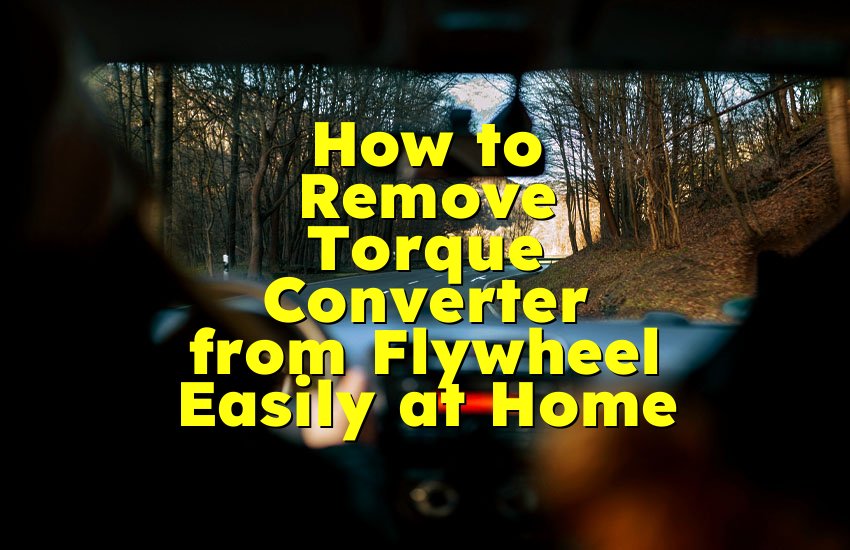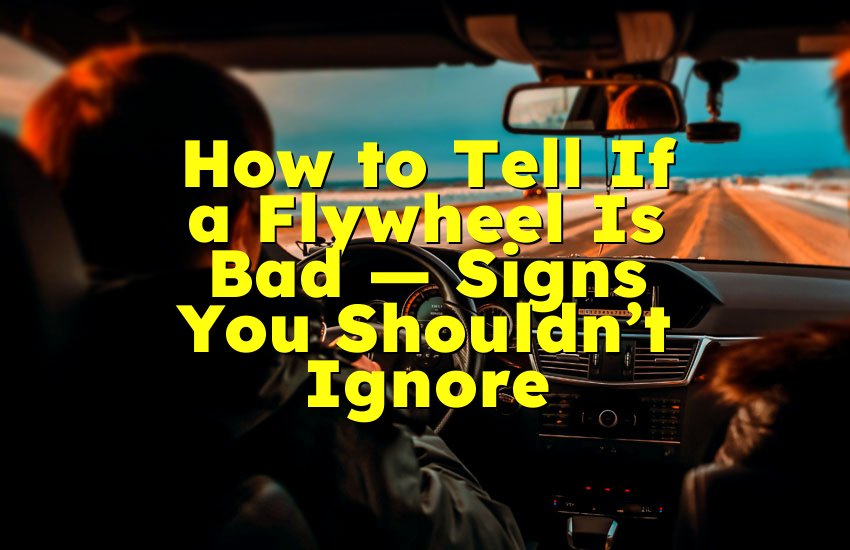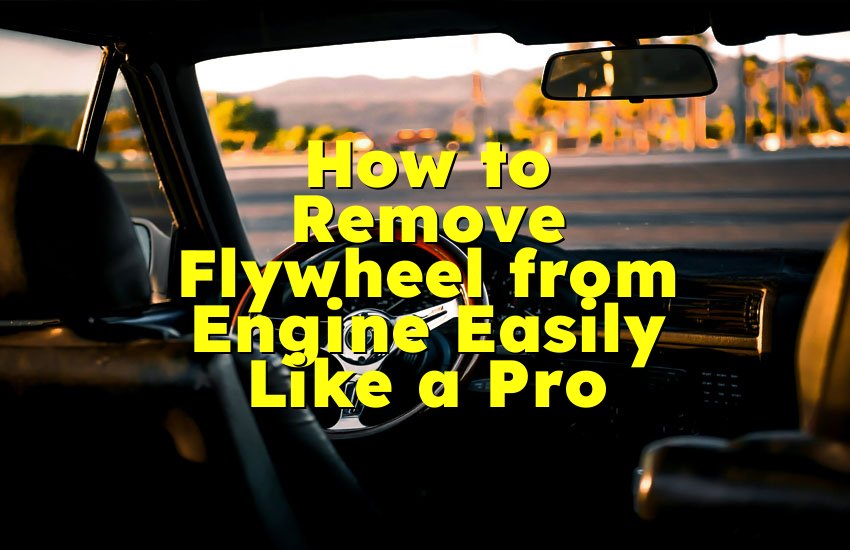As an Amazon Associate, I earn from qualifying purchases at no extra cost to you.
6 Symptoms of a Clogged Oil Filter You Should Never Ignore
Imagine driving on a peaceful road, then suddenly your engine starts making strange sounds. I faced this last winter, and the reason? A clogged oil filter. Yes, something so small can cause so much trouble. If your oil filter gets blocked, your engine doesn’t get clean oil. In this article, you will find the exact signs to watch out for and how to fix them before it’s too late.
Engine Making Strange Noises
When your oil filter gets clogged, your engine doesn’t get the oil it needs to stay quiet and smooth. Oil helps parts move without rubbing too hard. But when the oil filter is blocked, the oil doesn’t reach every part. I remember hearing ticking sounds from my car’s engine during a long drive. It was scary because I didn’t know what was going on. After checking with a mechanic, the problem was a dirty, clogged oil filter.
Without enough clean oil, metal parts inside the engine start rubbing together. This causes friction, which leads to noise. You may hear knocking, ticking, or even loud banging from under the hood. These sounds are your engine crying for help.
Oil is like blood for the engine. It keeps everything moving and cool. If the filter is blocked, thick or dirty oil gets stuck. This causes the oil pump to work harder and even overheat. You may hear whining sounds too. And if ignored, this could lead to serious engine damage that costs a lot to repair.
Many people think their engine is just getting old, but often the oil filter is the real issue. Mechanics say it’s one of the most overlooked parts. Regular oil changes are not enough if you don't change the oil filter too.
Here are signs your engine noise may be caused by a clogged oil filter:
- Ticking sounds when starting the engine
- Knocking when driving
- Loud whining from the engine
- Sounds increase with speed
- Noises disappear after oil change
Drop in Engine Performance
Another clear sign of a clogged oil filter is poor engine performance. When I noticed my car was slower than usual, especially while climbing hills, I thought maybe I had a fuel issue. But it turned out to be my oil filter again. This tiny part can affect how well your engine works.
Your engine needs clean oil to run smoothly. A blocked oil filter reduces oil flow, making the engine work harder. When oil doesn’t move freely, the parts inside the engine cannot function properly. This makes your engine weak and tired.
You may notice your car struggling to accelerate. It may also feel rough while driving or not respond quickly when you press the gas pedal. Even if you press harder, the engine doesn't give power like it used to.
Over time, this puts pressure on your engine and other parts. You might see warning lights on your dashboard. Fuel mileage may also drop because the engine is not working efficiently. I remember having to fill up gas more often even though I wasn't driving more.
If your car feels lazy, slow, or different from normal, don't ignore it. Check the oil filter as one of the first things. You don't always need to wait for the oil light to come on.
- Slower acceleration
- Poor fuel mileage
- Engine feels weak
- Car struggles on hills
- Delay in engine response
Oil Pressure Light Comes On
One of the easiest signs to spot is the oil pressure warning light. This light turns on when your car’s computer notices low oil pressure. A clogged oil filter is one of the biggest reasons this happens.
When the oil filter is blocked, it stops the smooth flow of oil. Your engine's sensors then detect that the pressure has dropped. That's when the oil pressure light comes on your dashboard. It's like your car is telling you something is wrong inside.
I once ignored this light, thinking it was just a sensor problem. That mistake cost me a lot. My engine ended up getting damaged and I had to spend hundreds on repairs. Always take this light seriously.
Low oil pressure can lead to overheating. The engine won't get the cooling it needs. It may start smoking or shut off suddenly. If that happens on a busy road, it can be very dangerous.
The oil pressure light is often red or yellow. Sometimes, it flashes before staying on. If you see it, stop driving and check your oil level. If the oil level is fine, the filter may be blocked. Don't wait too long to fix it.
- Oil pressure light stays on
- Flickering oil warning light
- Engine shuts off suddenly
- Engine overheating
- Smoke from the engine
Dirty Exhaust Smoke
One morning, I noticed thick black smoke coming from my car’s exhaust. I was confused because the car seemed fine the day before. When I visited the mechanic, the problem was again a clogged oil filter.
When the oil filter gets blocked, oil may enter the exhaust system. This causes black, dirty smoke to come out of your tailpipe. It's a sign that your car is burning oil in the wrong way.
Normal exhaust smoke is light and hardly visible. But if it becomes thick, dark, or smells burnt, something is wrong. A clogged oil filter can make oil leak into areas where it should not go.
The engine starts to burn oil along with fuel. This not only pollutes the air but also damages your car's inside parts. Your catalytic converter can also get ruined, which is very expensive to replace.
You may also smell oil inside the car. Or see oil dripping from the exhaust area. These signs tell you that your oil is not flowing properly.
People often mistake this for a fuel problem. But it’s smart to check your oil filter first. If you change it in time, the smoke usually goes away quickly.
- Thick black or gray smoke
- Smell of burnt oil
- Smoke increases with speed
- Oil leaks near exhaust
- Smoke appears after engine warms up
Overheating Engine
Oil keeps your engine cool, along with coolant. But if your oil filter is clogged, clean oil can't reach the engine parts. That causes overheating. I once got stuck in traffic during summer and saw my engine temperature needle rising fast. The cause? A clogged oil filter again.
Your car has a temperature gauge on the dashboard. If it goes above the normal range, your engine is overheating. When oil can't flow properly, friction builds up, and that creates heat. Your cooling system may still work fine, but without proper oil flow, it’s not enough.
Sometimes, the car may even shut down to protect the engine. Or, steam may come from under the hood. These signs are very dangerous and should not be ignored.
Engine overheating can lead to permanent damage. It can crack the cylinder head, blow a gasket, or even ruin the whole engine. All from one clogged oil filter.
You may also hear strange sounds or feel the engine shaking when it’s too hot. Some people may see their car lose power while driving.
- Engine temperature gauge rising
- Steam from under the hood
- Engine shuts off by itself
- Hot smell from the engine
- Rough engine sound or shaking
Poor Fuel Economy
If you feel like you're spending more money on gas than usual, a clogged oil filter could be the hidden reason. When the engine does not get clean oil, it works harder. That means it needs more fuel to do the same job. This happened to me last year, and I thought gas prices were to blame. But no, it was my oil filter again.
Dirty oil can't move freely, so your engine has to fight to run. This causes the car to use more fuel. You may notice your fuel tank goes empty quicker. You might even smell fuel near the engine or exhaust.
When the filter is blocked, the oil pump pushes harder. All that extra work uses up more gas. Also, sensors in the engine may send wrong signals, making the car use too much fuel.
This hurts your wallet and the environment. A clean oil filter helps keep your engine efficient and smooth.
If you check everything else but your fuel usage keeps rising, don't forget to look at the oil filter.
- Filling the gas tank more often
- Lower miles per gallon
- Smell of fuel
- No other reason for poor mileage
- Fuel usage increased after last oil change
Final Thoughts
A clogged oil filter may look small, but it can cause big problems. From engine noise to poor fuel economy, the signs are easy to miss but very harmful. I learned the hard way how important it is to change the oil filter regularly. Listen to your car. If you see or hear any of these signs, act fast. Your engine will thank you later.
| Sign | What It Means | What To Do |
|---|---|---|
| Strange engine noises | Oil not reaching engine parts | Check and replace filter |
| Weak performance | Engine not getting enough clean oil | Inspect oil flow |
| Oil light on | Low oil pressure from blocked filter | Stop and check filter |
| Black exhaust smoke | Oil leaking into exhaust | Replace oil filter |
| Overheating engine | Friction from lack of clean oil | Allow engine to cool, fix filter |
| Poor fuel mileage | Engine working harder, using more fuel | Replace filter, monitor use |
Frequently Asked Questions (FAQs)
Is it safe to drive with a clogged oil filter?
No, it is not safe. Driving with a clogged oil filter can damage your engine. When oil cannot flow freely, parts inside the engine rub together without proper lubrication. This causes overheating, noise, and even engine failure. If your oil warning light comes on or you hear strange sounds, stop driving and get the filter checked right away. Fixing the filter early can save you from spending a lot of money later.
Can a clogged oil filter cause starting problems?
Yes, it can. When the oil filter is blocked, oil doesn't reach engine parts easily. This makes it harder for the engine to start. You may notice your car cranks slowly or doesn't start at all. Dirty oil also adds pressure on the battery and starter motor. If your car struggles to start and the oil is dirty, check the filter. Replacing it can make starting easier and smoother.
Do I need to change the oil filter with every oil change?
Yes, it's a good idea. Changing the oil without changing the filter is like putting clean water into a dirty cup. The old filter still holds dirty oil and particles. When you run the engine, those particles mix with the new oil. This reduces the oil's power to clean and protect your engine. Always change the filter with the oil for best results.
Can a clogged oil filter cause engine to shut off?
Yes, it can. If the oil filter is badly clogged, it can block oil flow so much that the engine overheats or loses pressure. When that happens, your car may shut off to protect the engine. This is dangerous, especially if it happens while driving. If your engine shuts off without reason, always check your oil filter along with other parts.
Is it expensive to replace a clogged oil filter?
No, it’s not very expensive. Oil filters are one of the cheapest parts to replace in a car. Most oil filters cost between $5 to $20. Even with labor, it usually doesn't cost more than $40 or $50. But if you ignore a clogged filter, it could lead to engine damage, which may cost thousands. So, changing the filter is a small price to pay for big protection.
Can a clogged oil filter cause smoke?
Yes, it can. When the oil filter is clogged, oil may leak into the exhaust or other hot parts. This causes the oil to burn, which creates black or blue smoke. You might also smell a burning oil smell. Smoke from your exhaust is not normal and should be checked right away. Replacing the oil filter can often solve the problem quickly.
Do I need a mechanic to check my oil filter?
Not always. If you're comfortable opening the hood, you can check it yourself. The oil filter is usually easy to find. But if you’re unsure or the filter is hard to reach, it's better to visit a mechanic. They can check it fast and replace it if needed. Regular inspections help prevent big problems later.
Is it normal for oil filter to clog fast?
It depends on how often you drive and what kind of oil you use. If you drive in dusty or dirty areas or don't change your oil often, your filter may clog faster. Also, using low-quality oil or skipping oil changes can make your filter dirty quickly. A normal filter should last until the next oil change, usually every 3,000 to 5,000 miles.











